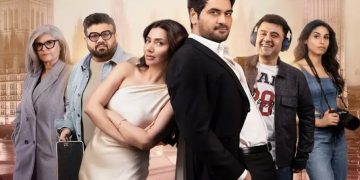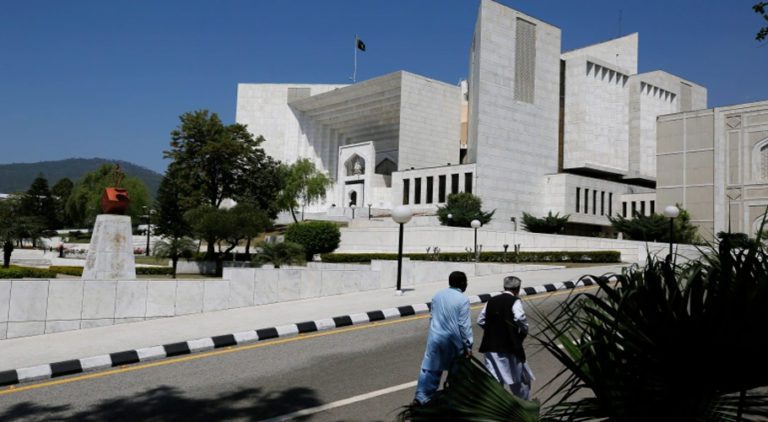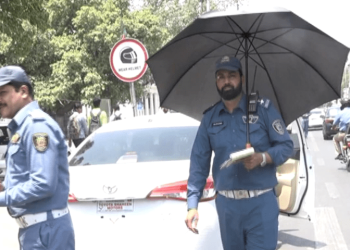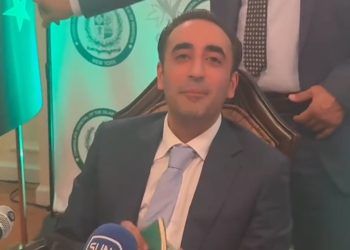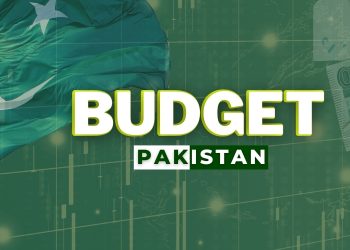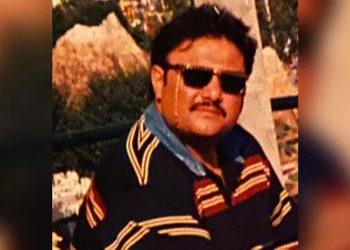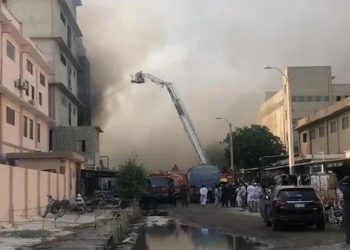Imran Khan is the only Prime Minister in the history of the country who has been involved in cricket and this is probably the reason why when he announced the dissolution of the National Assembly on April 3, 2022, his fellow bowler Waqar Younis in the 1992 World Cup; it’s called a masterstroke.
The steps taken by the prime minister on April 3 are unmatched by any other Prime Minister in the history of the country. Opposition groups called for a boycott of the by-elections, but the matter was being heard in the Supreme Court.
The Supreme Court took suo motu notice of the rolling of Deputy Speaker Qasim Suri on April 3 and the hearing of the case is still going on today during which very important questions were raised.
What did Qasim Suri do?
Deputy Speaker National Assembly Qasim Khan Suri presided over the National Assembly session on April 3. This was the day when the no-confidence motion against the Prime Minister was to be voted on. The Supreme Court has said that it is necessary to discuss the no-confidence motion before voting.
Qasim Khan Suri started the meeting and after the recitation of the Holy Quran, Information and Law Minister Fawad Chaudhry gave a short speech and termed the no-confidence motion a foreign conspiracy. The Deputy Speaker said that Fawad Chaudhry was right.
Deputy Speaker Qasim Khan Suri had earlier rejected the motion of no-confidence in the National Assembly and adjourned it.
Imran Khan’s masterstroke
As soon as the National Assembly session ended, the prime minister addressing the nation said that he had sent a proposal to the President to dissolve the National Assembly.
On this occasion, a gentleman asked what the President would do, then he replied that the President did not deny any ordinance, it is a no-confidence motion, how can it be denied? And that’s what happened. The President dissolved the National Assembly.
Notice and SC hearing
Several opposition leaders, who had earlier been seen demanding the resignation of the prime minister, are now demanding the restoration of the National Assembly. Probably a factor as to why they’re doing so poorly.
Well, the Supreme Court took notice of the incident and the case has been pending since April 3. Honourable judges are repeatedly raising the question that what is the constitutional status of the action taken by the Deputy Speaker in the eyes of the opposition and the government?
What happened in today’s hearing?
Today, the arguments of the President’s lawyer Ali Zafar were completed. Imtiaz Siddiqui, counsel for the prime minister, argued that the court had in the past refrained from interfering in the proceedings of the assembly.
Lawyer Imtiaz Siddiqui said that the opposition had not objected to the presidency of the Deputy Speaker. Qasim Suri decided what he thought was best. He is not answerable to the court. The Supreme Court said that this is the law and the court will decide the privilege of parliamentary proceedings. How much privilege the action has to take.
Arguments of Naeem Bukhari
Naeem Bukhari, counsel for the Speaker and Deputy Speaker, said that the point of order was not taken up in the no-confidence motion but it could be taken up at any time. The court asked what material did the deputy speaker have for rolling? Naeem Bokhari said to let the requests be frozen.
Lawyer Naeem Bokhari said that he would answer all the questions of the court. Justice Jamal Mandokhel asked whether it was unconstitutional for the Speaker not to hold a no-confidence vote. Naeem Bokhari said that if the speaker had rejected the point of order, would the court still intervene?
Justice Ijaz-ul-Ahsan asked whether the pending motion of no-confidence could be dismissed on point of order. Naeem Bokhari said that this has not happened before, but the speaker has the power. New elections have been announced. The matter is with the people. The Supreme Court should not look into this matter.
What will be the decision of the court?
The Constitution states that just as the Speaker cannot interfere in the decisions of the Chief Justice, no court can question the rolling of the Speaker. However, in the self-notice case, the Supreme Court actually wants to determine how much the Speaker violated the Constitution.
On the one hand, the remarks of the Supreme Court are in favor of the opposition and on the other hand, they are in favor of the government. The court wants to make a decision so that the snake dies and the stick does not break. A balanced decision can be made in favor of both the opposition and the government.


